The Navy’s Newest Aircraft Carrier Is the Most Advanced In the World, But It Doesn’t Have Any Urinals
Every bathroom on the USS Gerald R. Ford is gender-neutral.
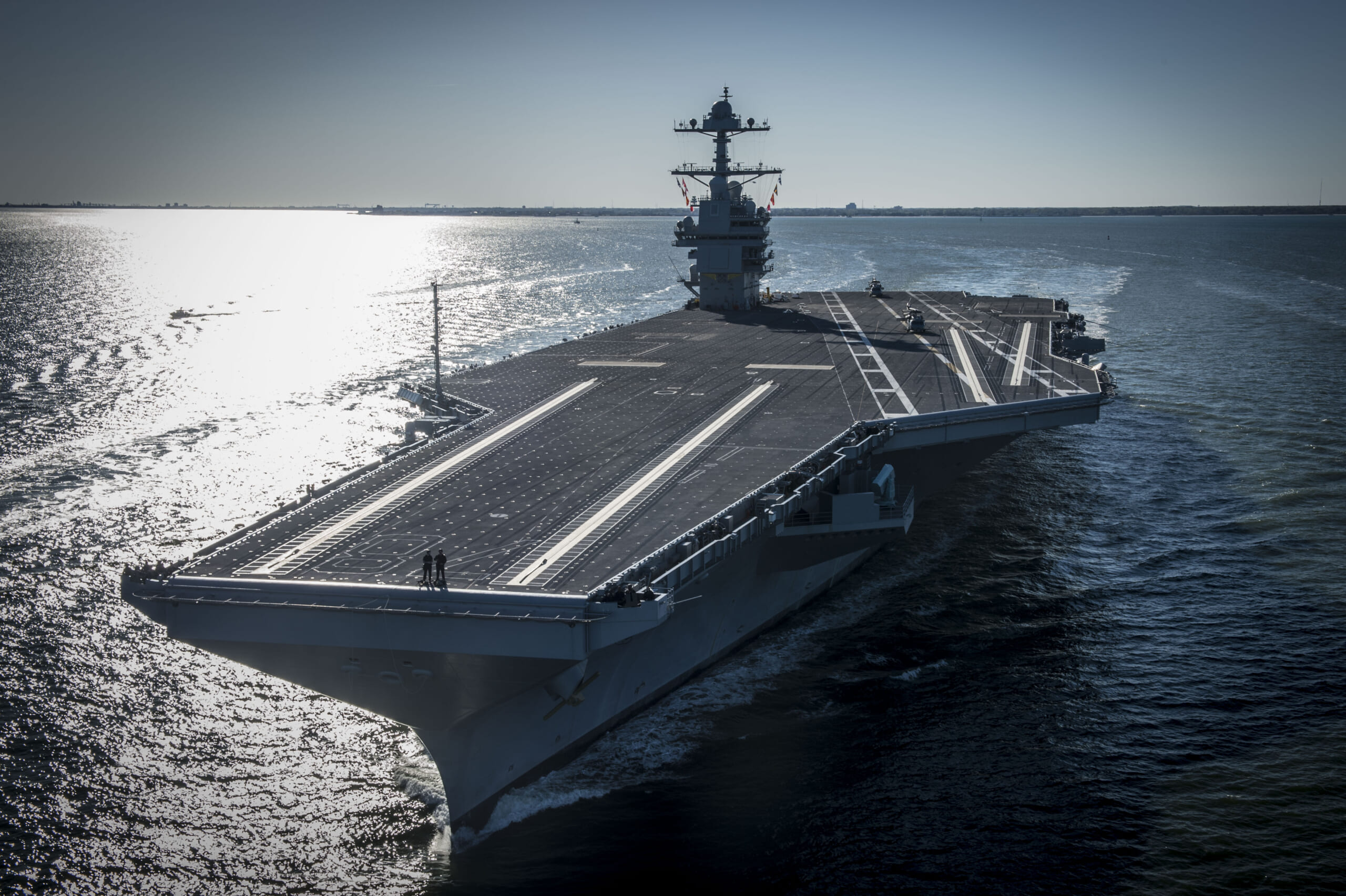
The U.S. Navy has officially commissioned its newest aircraft carrier, the USS Gerald R. Ford, which is bigger and more powerful than the Nimitz class of carriers it replaces.
The Ford is so advanced that when it heads out on its first mission, probably in 2020, it will carry a crew of 2,600, which is 600 fewer sailors than Nimitz-class carriers. It will also sail without any urinals in its heads (that’s sailor jargon for bathroom).
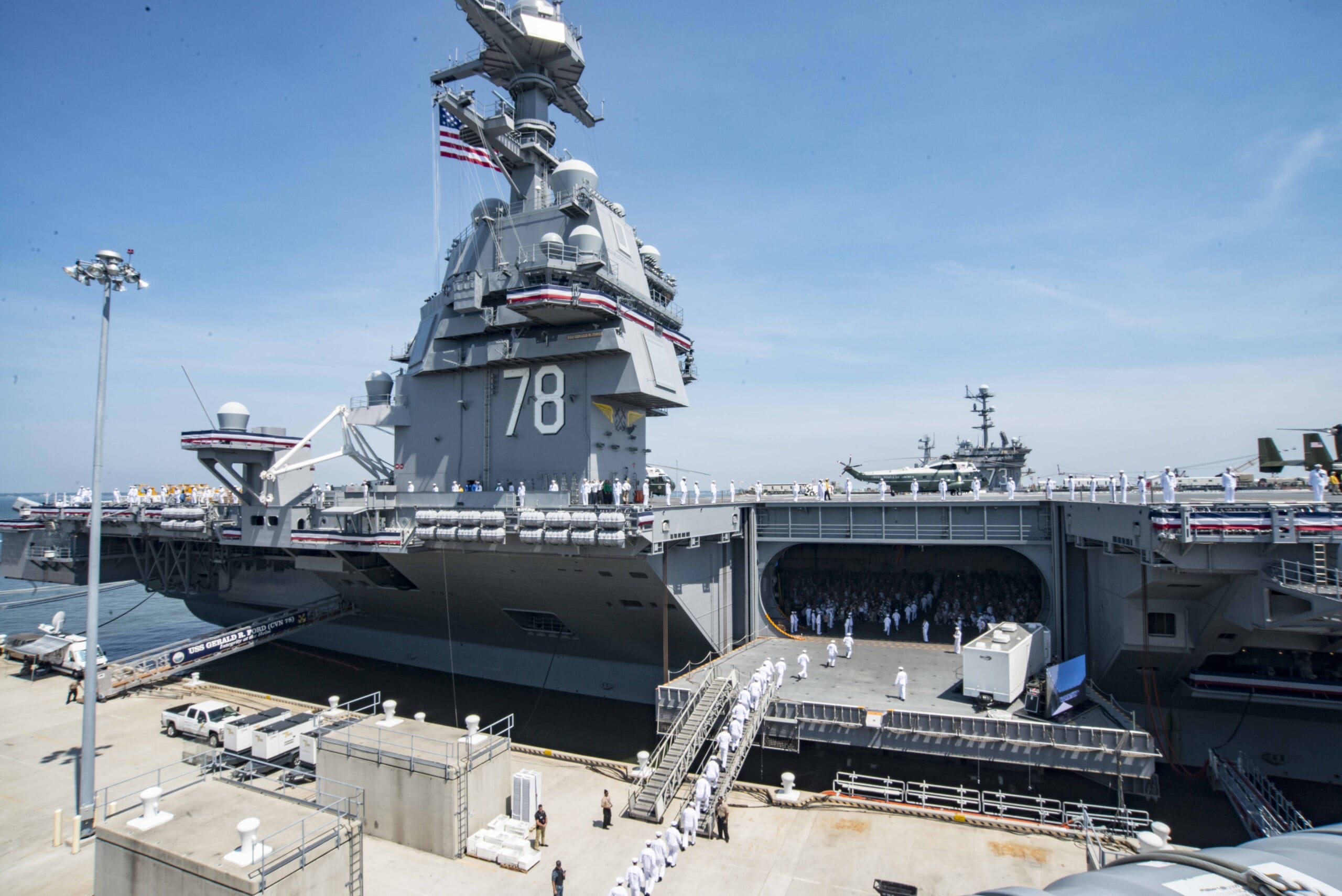
The Ford has 250 percent more electrical power than the Nimitz and it uses that juice to power its electromagnetic catapults for launching airplanes. Unfortunately, so far, this futuristic technology still doesn’t work properly, leaving the Ford as an aircraft carrier that cannot launch its aircraft.
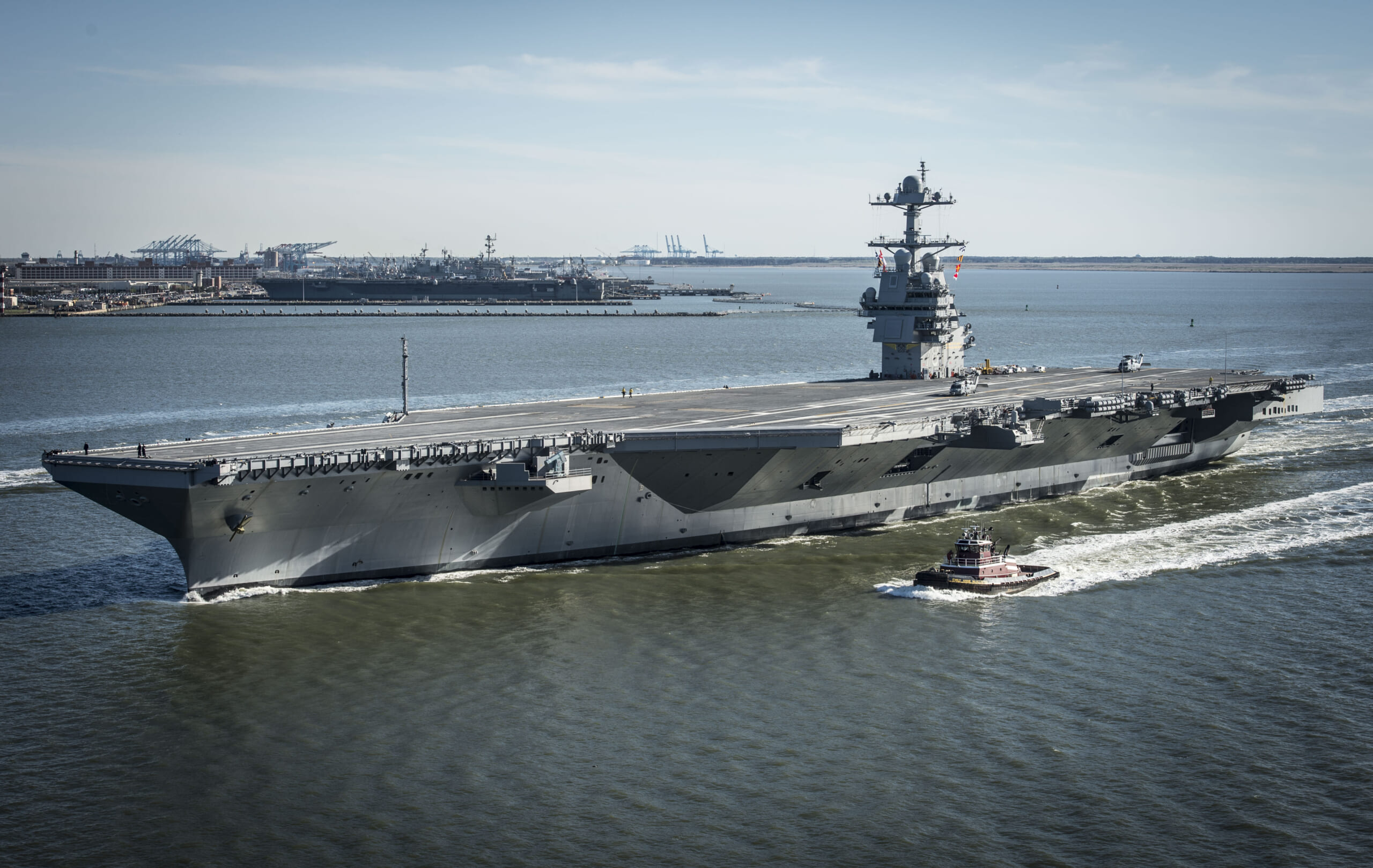
But ditching urinals, which was done as part of a gender-neutral redesign of the ship’s living quarters, eliminates some headaches, as urinals are apparently more prone to failure than regular toilets, according to Navy Times. Sailors interviewed anonymously by Navy Times also report that urinals are harder to scrub clean than toilets, so they say good riddance.
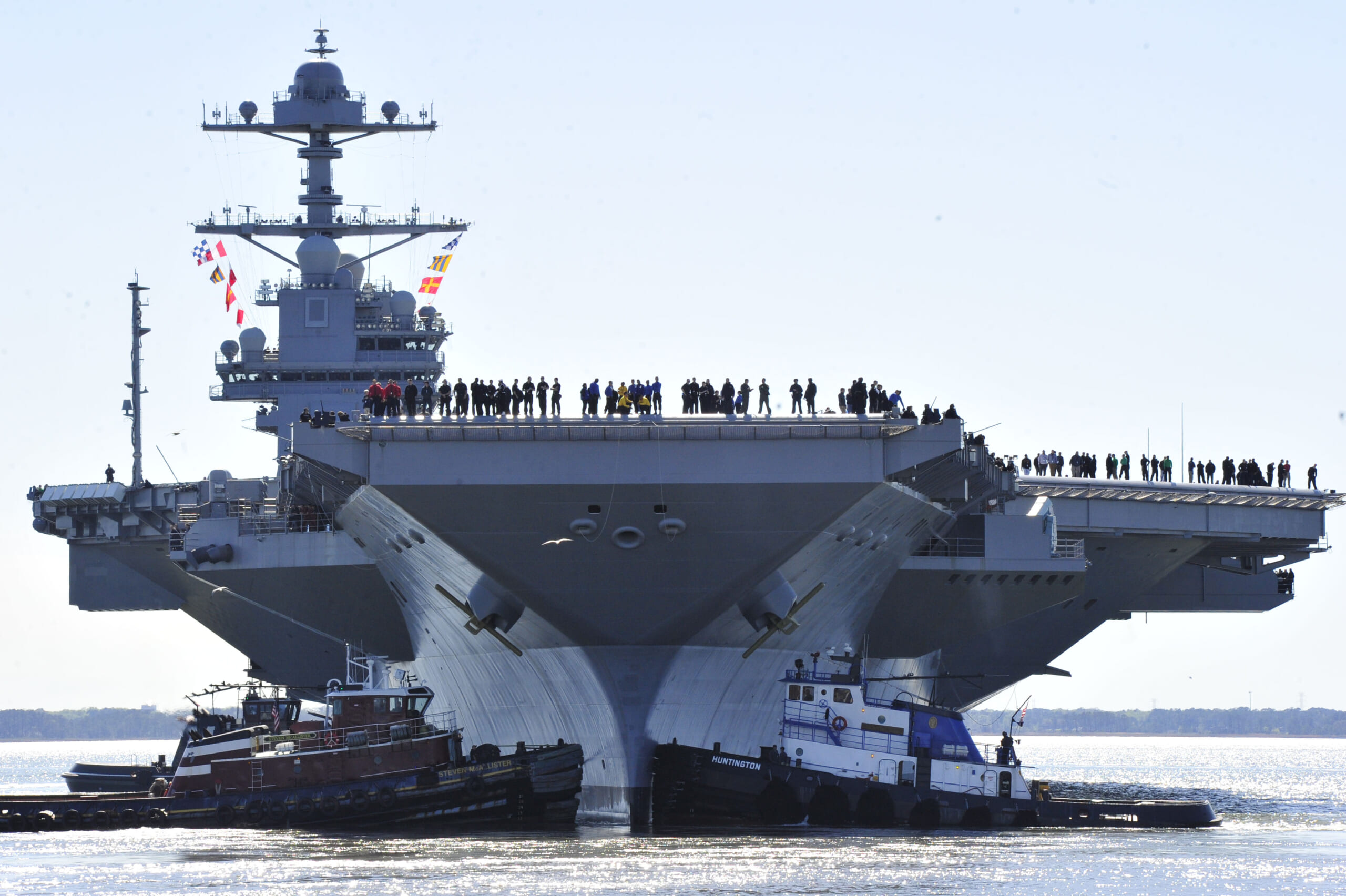
If only the catapult problems could be solved as easily. The ship has suffered an array of technical failures and cost overruns that have doubled its planned $6.5 billion price tag to $13 billion and delayed its launch by three years.
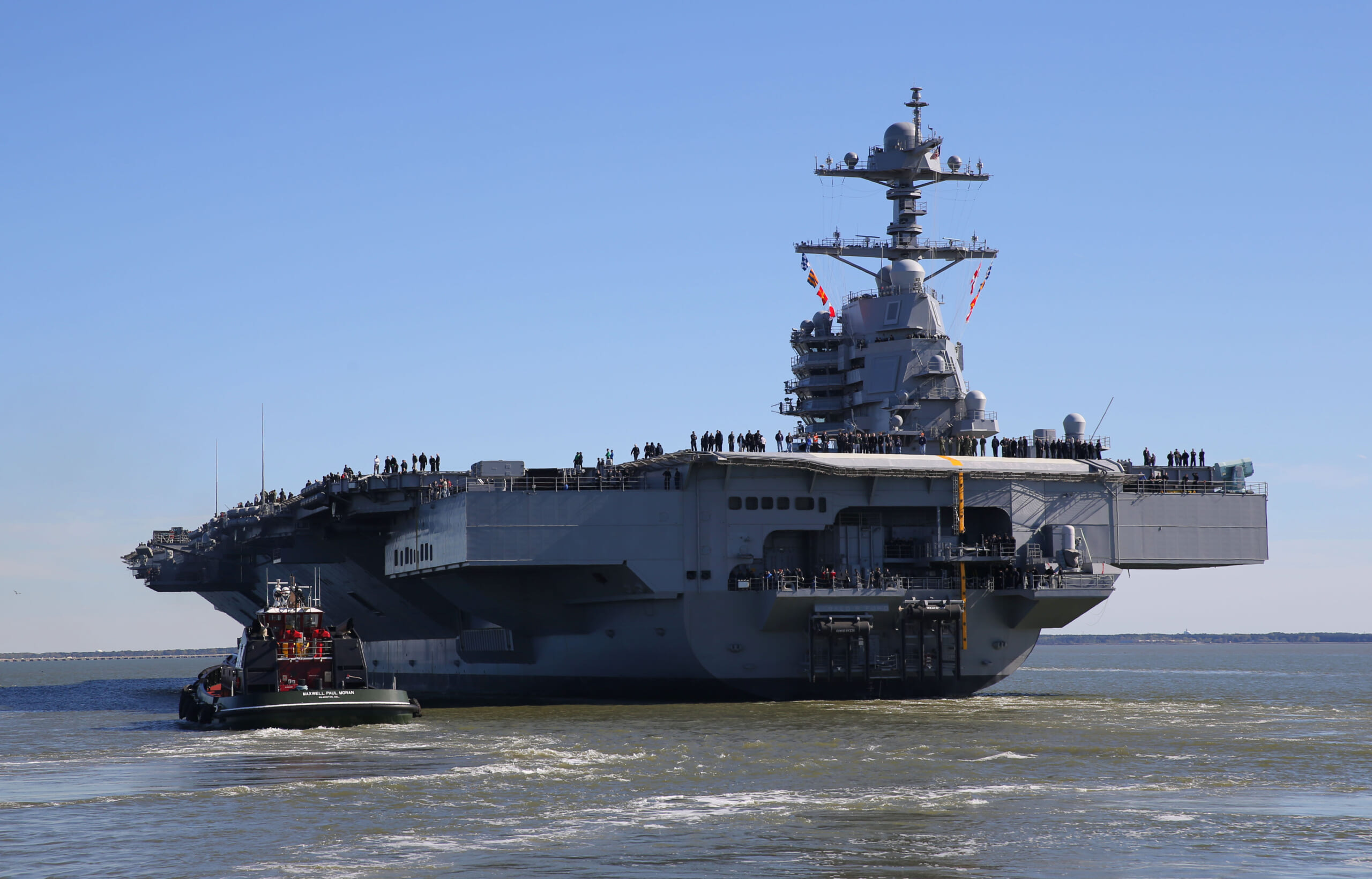
Other problems included trouble with the power-generating main turbines and with the new Advanced Arresting Gear system used to capture planes when they land.
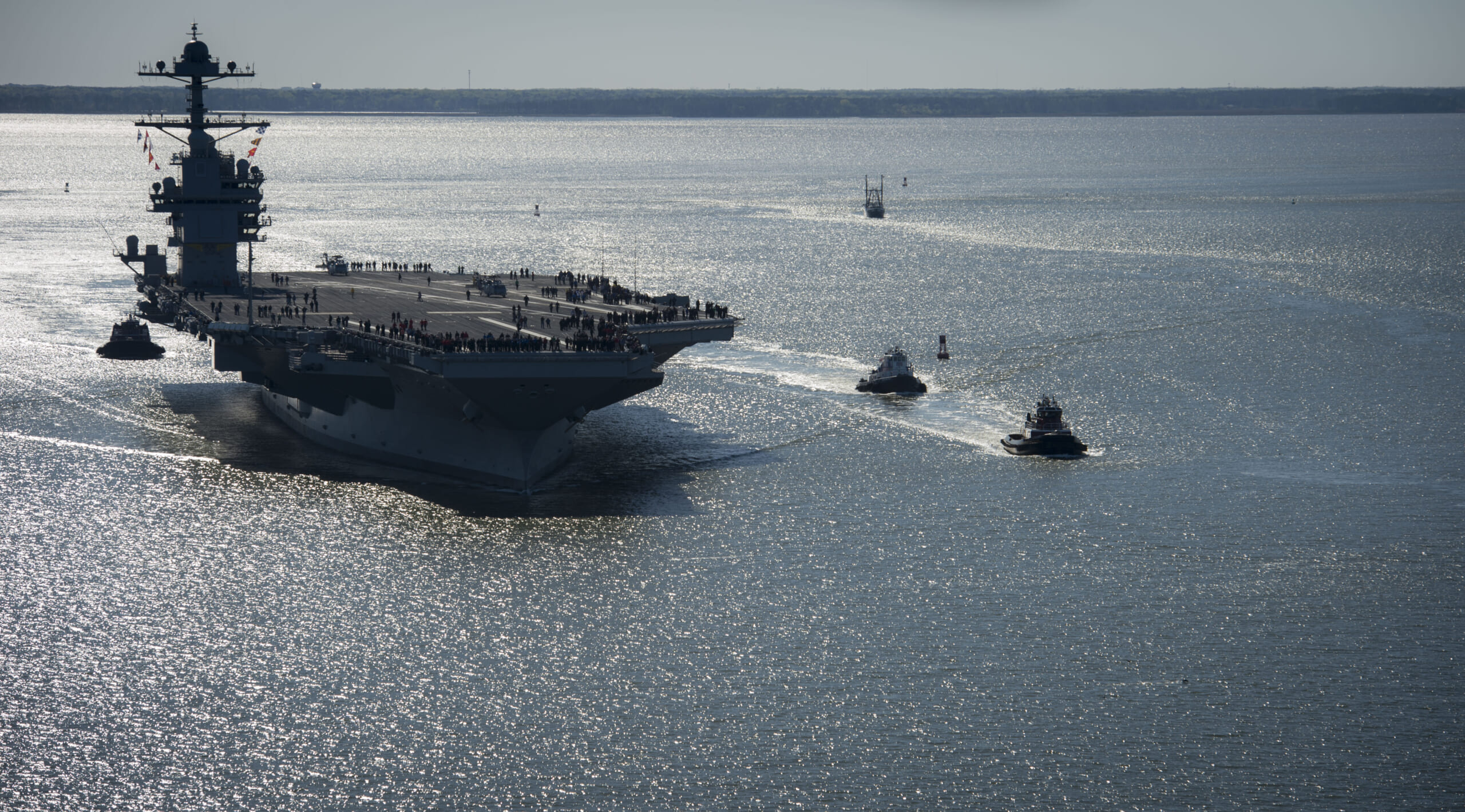
The upgraded quarters include wider passageways and smaller berthing areas, which have shrunk from as many as 180 sailors to 40 or fewer sailors per berthing. The Ford carries three huge gyms for workouts, and the boosted electric power (if they get the turbines sorted) provides better air conditioning to keep the crew from roasting in hot climates.
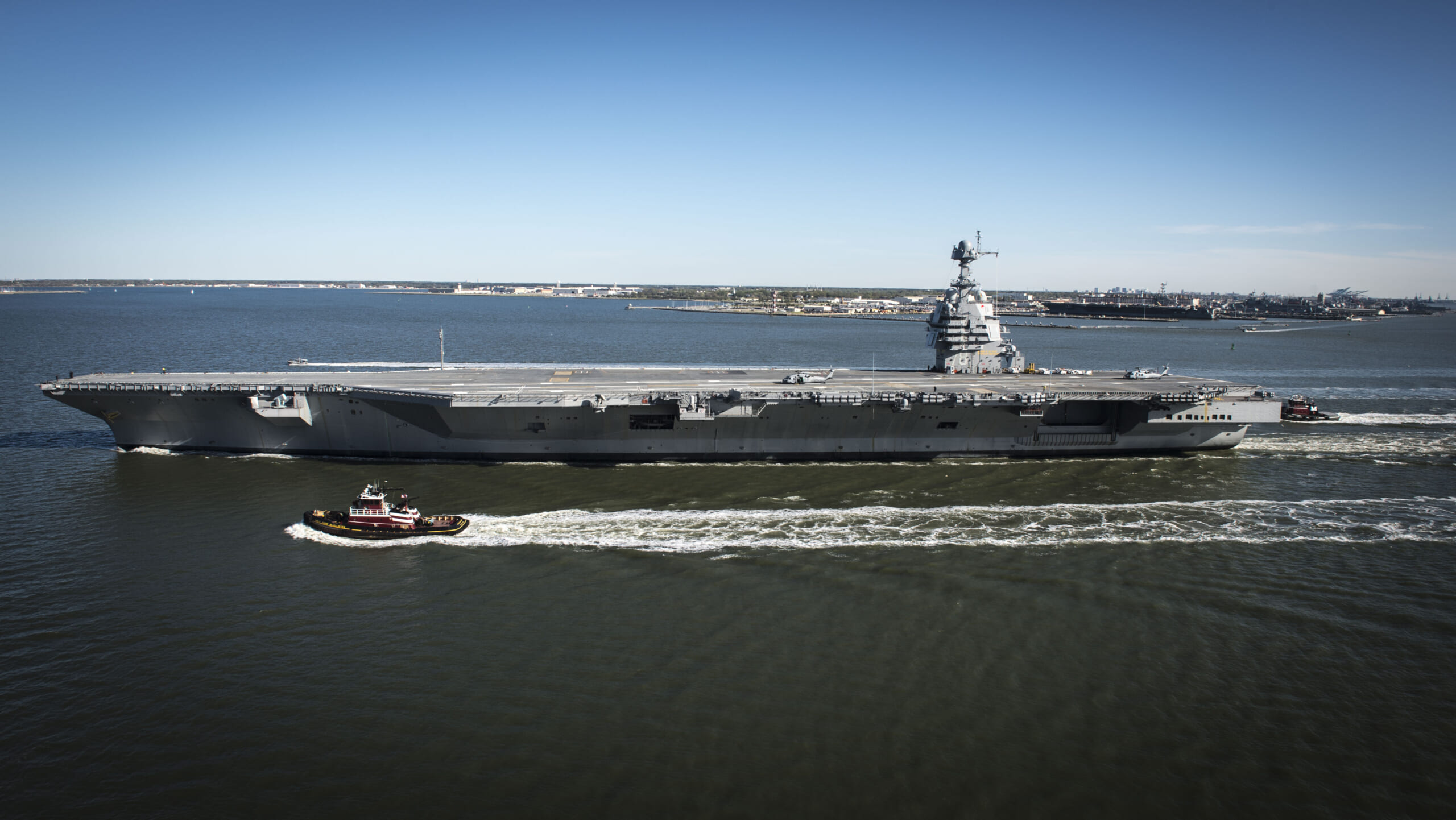
Ford is the lead ship of its class and the first new-design aircraft carrier delivered to the Navy since USS Nimitz (CVN 68) in 1975. It is also the first aircraft carrier to join the fleet since USS George H. W. Bush (CVN 77) delivered in 2009. The future USS Gerald R. Ford honors the 38th president of the United States and pays tribute to his lifetime of service to the nation in the Navy and in the U.S. government.
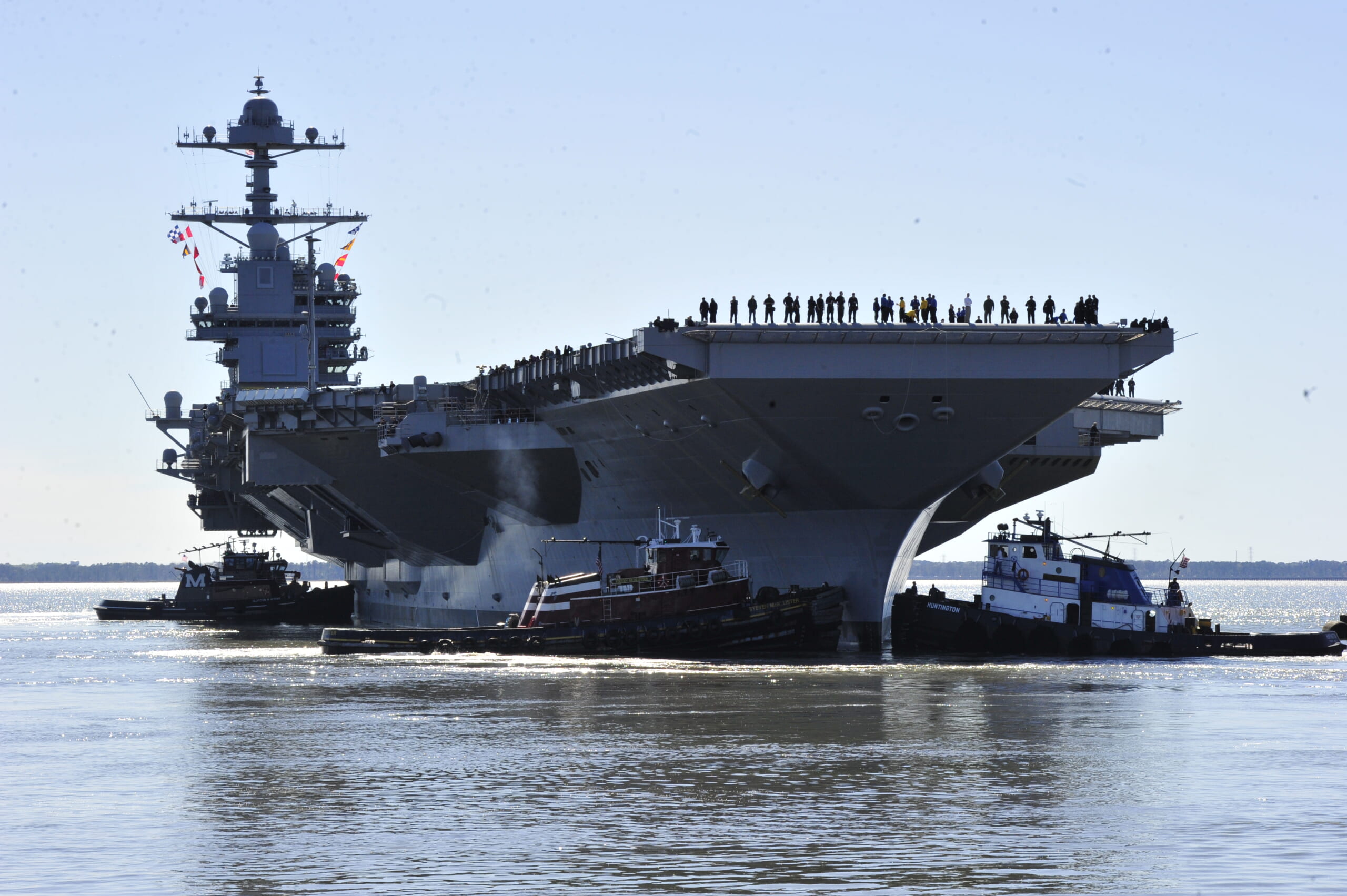
CVN-78 honors the 38th president of the United States and pays tribute to his lifetime of service in the Navy, in the U.S. government and to the nation. During World War II Ford attained the rank of lieutenant commander in the Navy, serving on the light carrier USS Monterey (CVL 26). Ford became president in the aftermath of the Watergate scandal and served in the country’s highest office from 1974-1977.
No word on lieutenant commander Ford’s view on the necessity of urinal aboard ship.
